UNITY — Abbey Verrier and Laura Sieger like to get in the car and search for apple trees — particularly old ones that bear heirloom fruit that they can store and preserve for future generations.
If they find a tree beside the road and they don’t know who owns the land it’s on, they will knock on doors until they find the owner.
A typical property owner’s response is that they are welcome to pick the apples.
“They’ll sort of warn us that maybe we shouldn’t because maybe they’re not edible,” Verrier said.
Most landowners are friendly, they said.
“Oftentimes, they’ll say ‘yes,’ and they’ll tell you where there are six more trees,” Sieger said.
Verrier and Sieger spoke Sunday at Great Maine Apple Day held at the Common Ground Education Center and sponsored by the Maine Organic Farmers and Gardeners Association, Fedco, and the University of Maine Cooperative Extension.
The event celebrates the history, flavor and tradition of Maine apples with hands-on kitchen workshops, speakers, apple treats including apple cheddar pizza, apple cake and apple hand pies.
It was standing room only as more than 70 people packed the second-floor library to hear Verrier and Sieger talk about fruit exploring in Maine.
Verrier, 27, co-owns “Rocky Ground Cider” in Newburgh where she owns an orchard and produces and sells hard cider; Sieger, 24, of Gardiner, works at the Maine Heritage Orchard, a 10-acre preservation educational orchard on the MOFGA grounds that has about 300 varieties of apples and pears traditionally grown in Maine. Apple varieties on the site are from all 16 Maine counties and date back to 1630.
Both Verrier and Sieger are graduates of the College of the Atlantic where they studied human ecology. Both are members of MOFGA and both were interns for Palermo resident John Bunker, a Colby College graduate who created Maine Heritage Orchard, started Fedco Trees in 1984 and is author of the book, “Not Far From the Tree: A Brief History of the Apples and the Orchards of Palermo, Maine.”
Contrary to what many people may think, all apples growing in Maine are edible, no matter how they appear, according to Verrier and Sieger, who say apples in the store are probably more toxic than those you find growing by the side of the road. “Every apple tree is completely edible,” Sieger said. “They do not always taste good, but they’re completely edible.”
Verrier forages for fruit to find the best ones for use in making cider, she said. The best cider is made from apples that taste bad and have tannins and low acidity.
Apples taste best when you pluck the fruit right off the tree, according to Sieger.
Apple trees like to grow at the edges of places — forests, roads, fields — and spring is a good time to find them, the women said.
“They’re all in bloom in the same short window,” Sieger said.
If ones plants a Black Oxford apple seed, the tree that grows from it will not bear a Black Oxford apple, but the apple might have some of the characteristics of a Black Oxford, according to Sieger and Verrier.
“Every seed has the genetics of two parents,” Sieger said. “They may resemble the parents, but they may not.”
People may graft seedlings or saplings by splicing twigs together to try to get a particular kind of apple.
“You can often tell when a tree is grafted because there will be a scar on the tree,” Verrier said.
Sometimes the women forage for trees with a group of people, they said.
Verrier said it is a wonderful experience to see a very old apple tree, possible 200 years old, whose core is rotted and its bark, gnarly.
“They can still produce bushels and bushels or gorgeous apples,” she said. “It’s kind of a fun tradition to be a part of.”
Other than just tasting the apple, one of the easiest ways to determine if an apple is ripe for picking is to cut the apple in half and look at its seeds, according to Verrier. Apple seeds start out white and as the apple grows, the seeds get darker until they are a dark chocolate black, she said.
“That’s usually when they’re ripe,” she said.
There are thousands of varieties of apples and about 20 species, according to Sieger.
If one has to yank an apple off the tree, it is not ripe yet.
“You don’t want to yank it — you want to lift it off,” Verrier said.
Verrier and Sieger produced an apple that had a stem attached to the spur.
“That spur will not produce fruit the next year because it’s broken,” Verrier said.
She said a Blue Wolf apple is a perfect fruit for making cider. It has low acidity, is a little bitter and a little tannic, but still edible.
After their talk, Gef Flimlin, retired professor emeritus of Rutgers New Jersey Agricultural Experiment Station, said Verrier and Sieger knew their stuff. Flimlin is in the process of moving to Maine, he said.
“I thought they had a good grasp of the basics we’re looking for — grafting, root stocks and scion wood,” he said.
On the first floor of the MOFGA education center, tables were decked out with dozens of varieties, sizes, colors and shapes of apples, many of which originated in Maine. They included the Starkey, a large, reddish-pink apple that originated in Vassalboro in 1820; a green Washington Sweet apple from 1847 Sidney; a greenish-yellow Gray Pearmain, dating back to before 1860 Fairfield; a small Red Blaze apple from 1800s Mercer; and a Canadian Strawberry, a pink and yellow apple that originated in Solon prior to the 1800s.
A crowd gathered around an apple tasting table, cutting pieces of apples and plopping them in their mouths.
Jennifer Vazconcelo, 22, tasted a tiny green and yellow apple called a “Brandy.”
“I don’t like that much — it was super sour,” said Vazconcelo, a student at Methodist University in South Carolina who is studying environmental and occupational management.
Vazconcelo, who said she had come to the event with a friend who attends College of the Atlantic, then tried another apple — a Minnesota 447.
“It was sweet and with a little flavor, and chewy, too,” she said, smiling.
Amy Calder — 861-9247
Twitter: @AmyCalder17
Copy the Story LinkSend questions/comments to the editors.


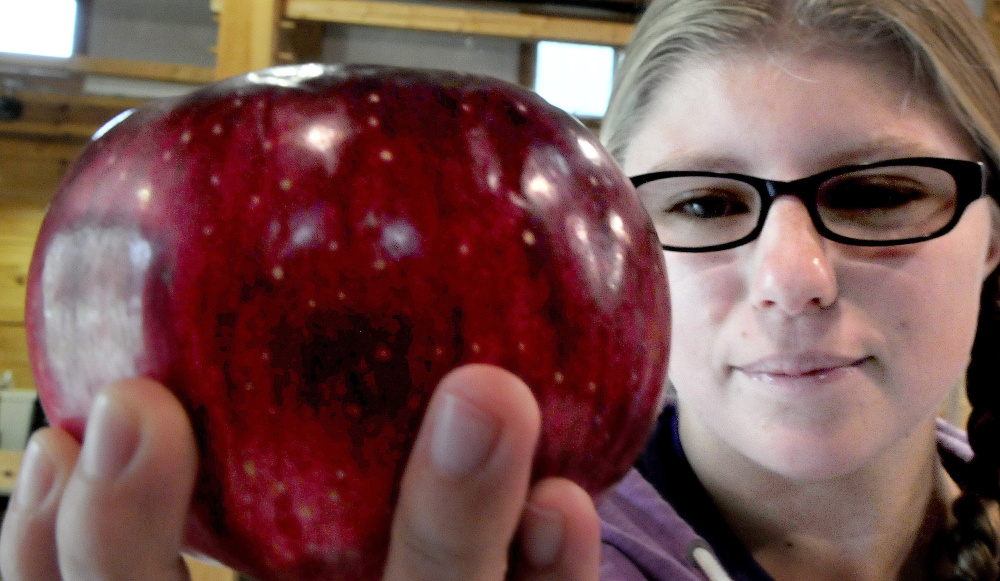
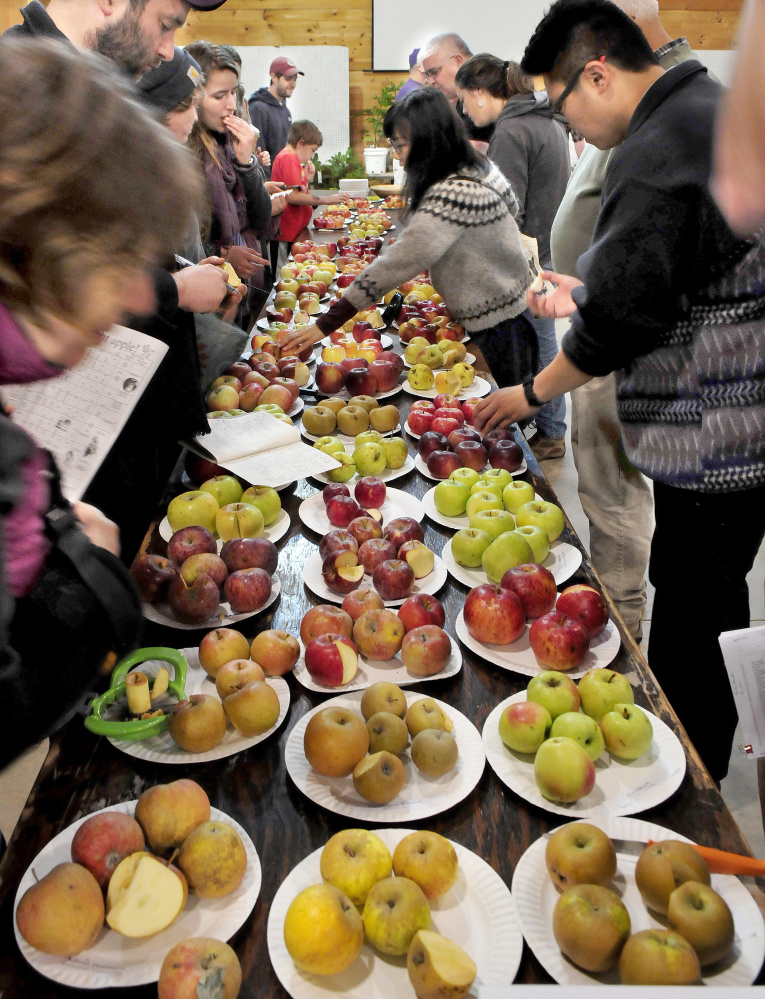
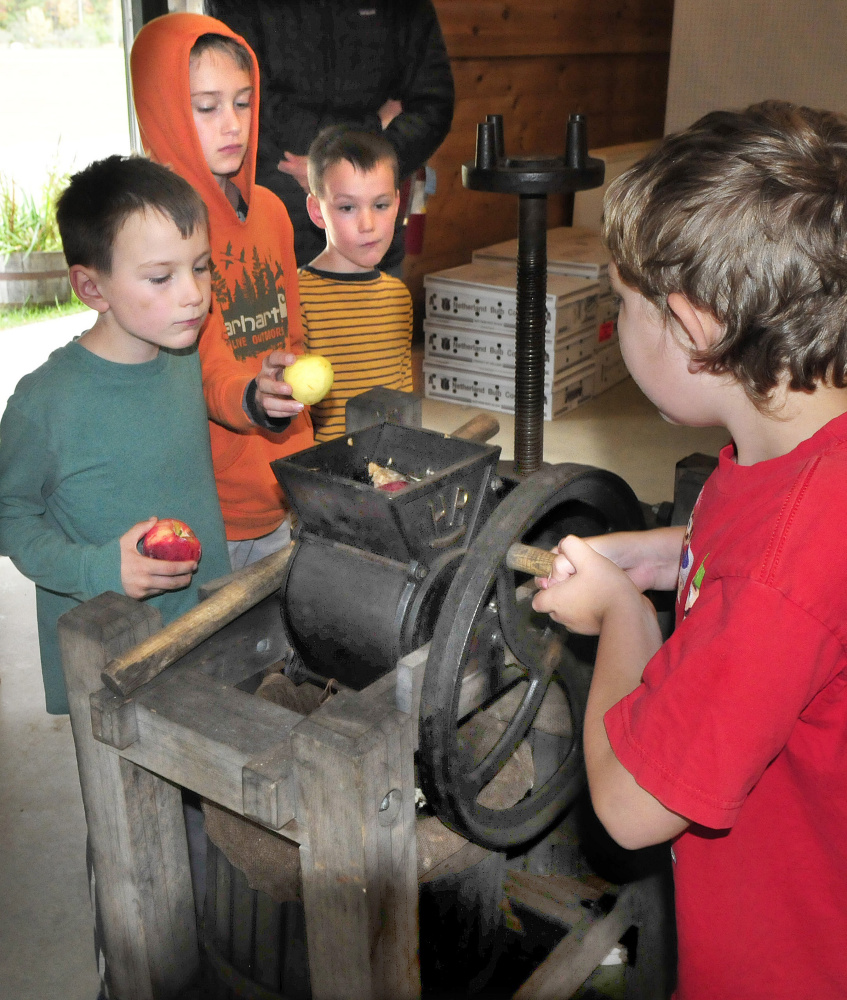
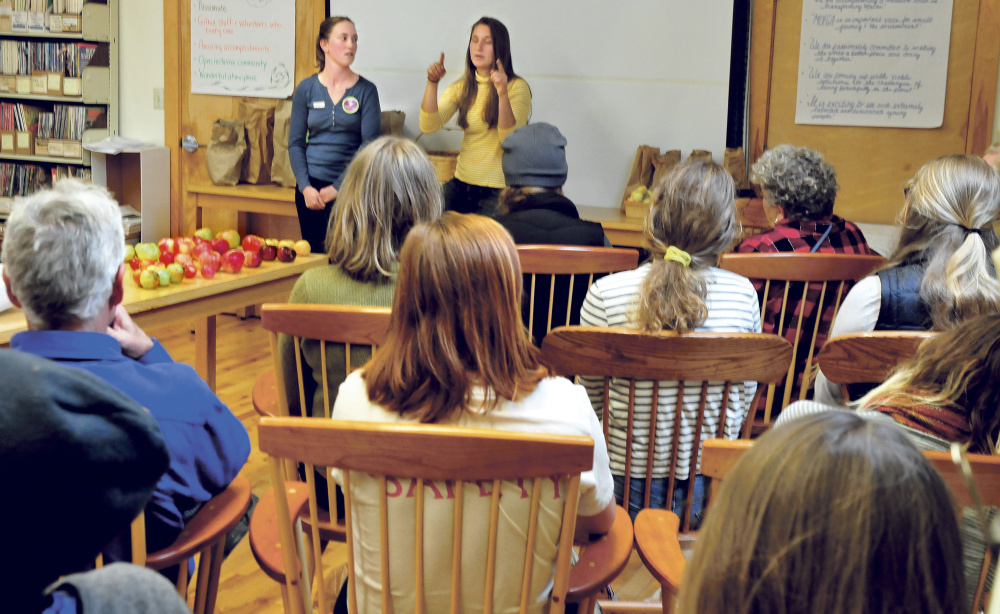
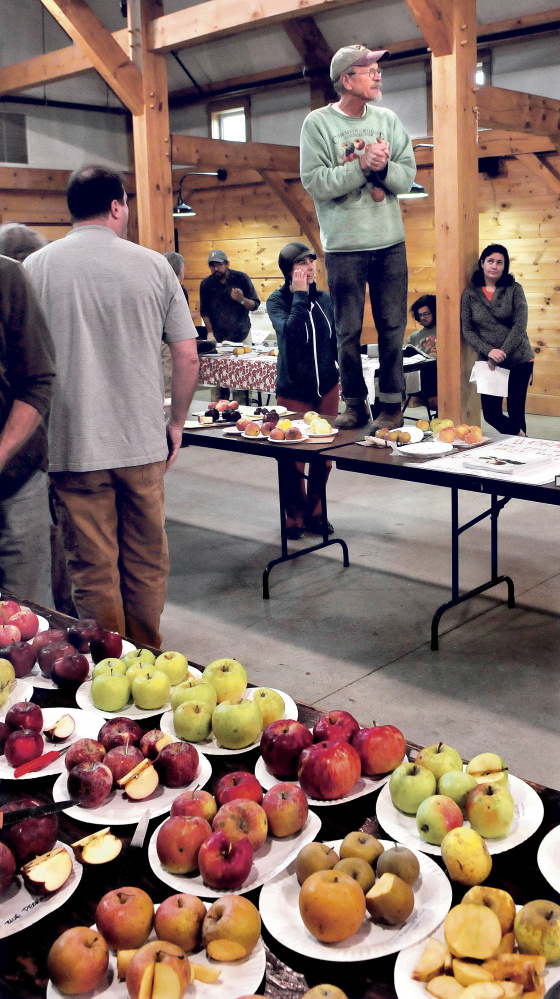

Success. Please wait for the page to reload. If the page does not reload within 5 seconds, please refresh the page.
Enter your email and password to access comments.
Hi, to comment on stories you must . This profile is in addition to your subscription and website login.
Already have a commenting profile? .
Invalid username/password.
Please check your email to confirm and complete your registration.
Only subscribers are eligible to post comments. Please subscribe or login first for digital access. Here’s why.
Use the form below to reset your password. When you've submitted your account email, we will send an email with a reset code.